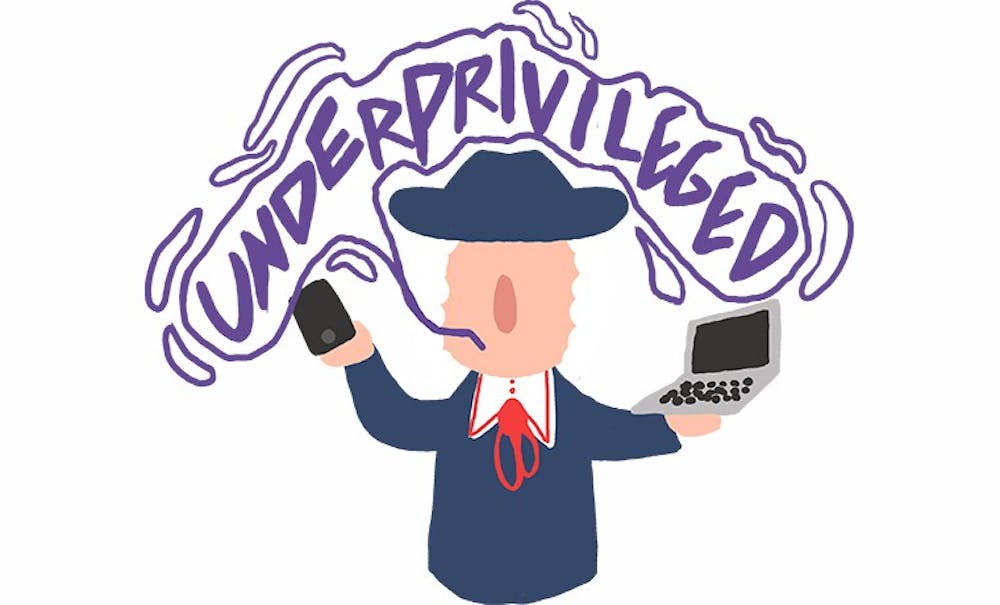“They’re just like any other kids; they’re just your students for the day.” That’s what I would tell myself as a freshman volunteer who worked with kids in West Philly. Looking back, I couldn’t have been more naive.
Two years ago I started volunteering as a teacher for a student–run nonprofit called ACTION (Active Cross-Cultural Training in our Neighborhoods). ACTION teaches basic Spanish in underfunded Philadelphia public schools, where students lack access to consistent foreign language or cultural education. I continued to teach with ACTION and eventually became a member of the executive board. Since then, I’ve come to realize that the kids I teach aren’t "just like any other kids."
Let me clarify, children in West Philly aren’t abnormal. They aren’t monolithically “at risk,” the kind of buzzword verbiage I used to buy into. The kids I teach in West Philadelphia are energetic, smart, moody and adorable. They are smiles, fits and excitement—everything that children are. Yet, they cannot be any other children to me, or I risk recklessly hurting them.
I risk hurting them, because if I ignored who they are (if I were color– or class–blind), I would be ignoring my relationship to them as a white, male, Ivy League student doing social impact work in a historically oppressed community. When I volunteer, I am not just me, and they are not just them. Our interaction is loving, but it's still an interaction fraught with politics. I am still privileged beyond belief, and they are still oppressed by the system that’s supposed to be teaching them.
What I’ve come to realize is that I don’t get to pick up and put down my privilege; I carry it around with me all day, every day. My race, my class, my gender identity, my education: it’s always there. I used to think it faded into the background when I was volunteering. At the very least, I hoped that I was using my privilege to empower. Instead, I wore it as an armor that shielded me from having to come to terms with what I was doing wrong. Weighed down by my own ignorance, I stumbled into Lea Elementary and thought that because, as a Penn student, I was taking interest in addressing an issue in West Philly, I had “gotten it.”
At the same time that I thought I was doing the right thing, I was complicit in taking cabs and Ubers to the schools where we taught. I whipped my iPhone out to remind myself of the curriculum one too many times. I spoke about college like it was a given. I brought constant reminders of what our kids may not have.
To be sure, we brought smiles and Spanish, too. Yet, when we went home, some of us and undoubtedly many others on campus used language like “at risk” or “underprivileged” because, well, that phrasing made our work sound more noble without considering the possibilities of subtle linguistic racism. ACTION is undoubtedly dedicated to our kids, but the work isn’t about our kids. Our work addresses systemic inequality in education funding; the issue is money, not elementary schoolers. Imagine if they ever read that they were “at risk,” imagine the kind of sucker–punch to their self–esteem that could be. Imagine how it could insult their parents.
As Penn students, we all have something to offer—especially to a community that is so close to us. We also have, however, the privilege of ease. Helping West Philly is too often framed as apolitical charity. We’re helping people, great! And that’s admirable––but not when we ignore the context. Engaging with West Philly is something that we know we should do, but we aren’t always forced to think about how we should go about doing so. Just because we’ve burst the Penn bubble, doesn’t mean we’ve championed West Philly the best that we can. If my experiences have taught me anything, it's that being Penn students—compounded with other privilege—often lets us, and has certainly let me, masquerade as “saviors,” when the latent externalities of our work have the potential to wreak havoc.
In the past, we hadn’t fully realized how to frame our mission when we “aimed to empower ‘at risk’ students,” and I’ll speak for myself when I say that I didn’t have the right mindset. We were doing good, but we weren’t always doing a good job at it.
However, I’m proud to say that ACTION has taken important steps to better understand how our work can be most effective. Our sensitivity and awareness initiative aim to push our organization to think about the implications of everything we do. ACTION now actively discusses with and trains our members and executive board to recognize the politics of our work and our relationship to West Philly.
In short, yes, sometimes Penn students get caught up. We can be careless and insensitive, but we can get better. We just can’t be unaware about how we help others.
For ACTION, our kids might not be any other kids, but they’re not “at risk” anymore.

